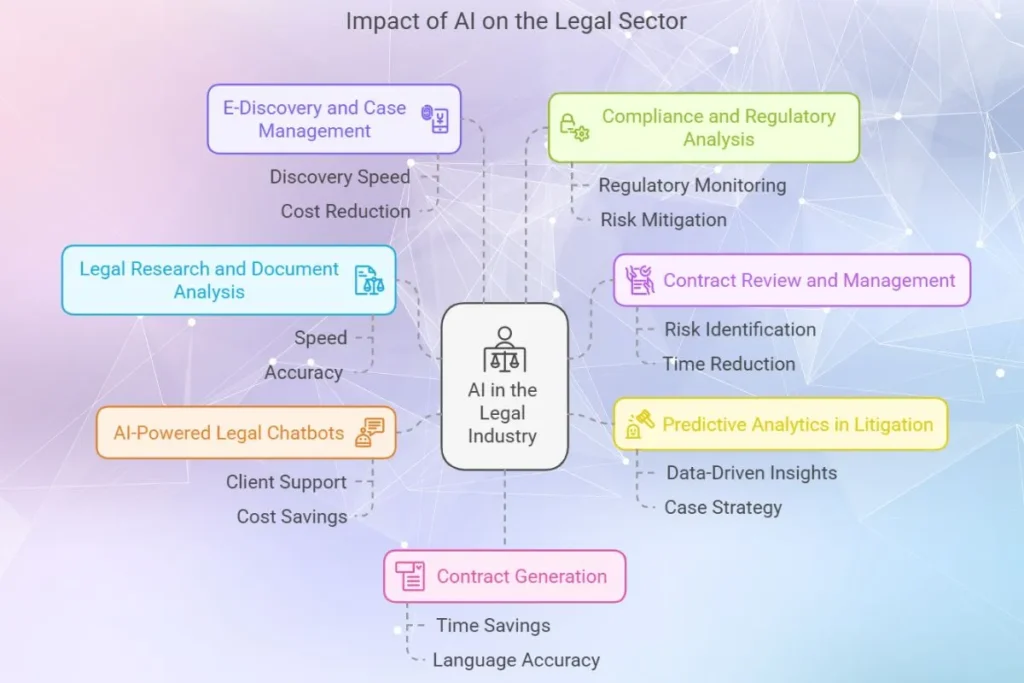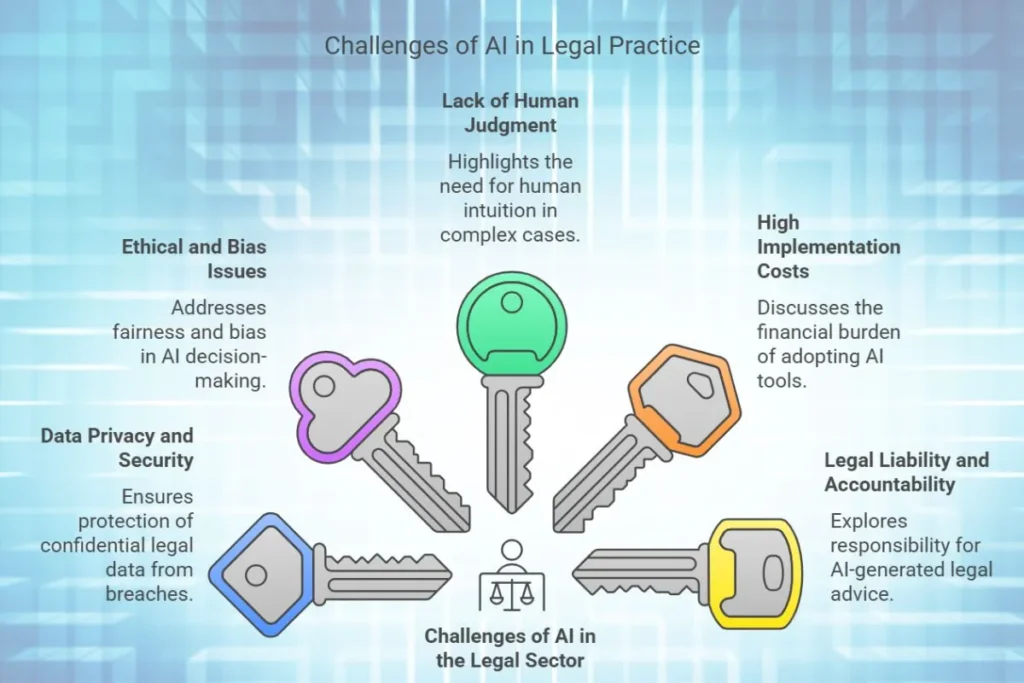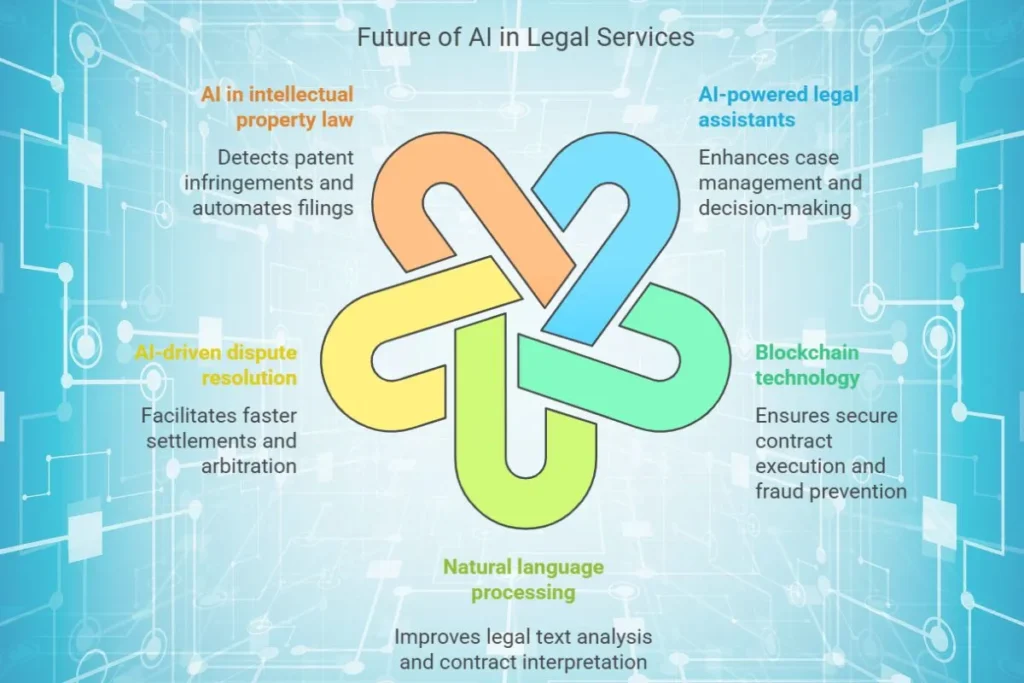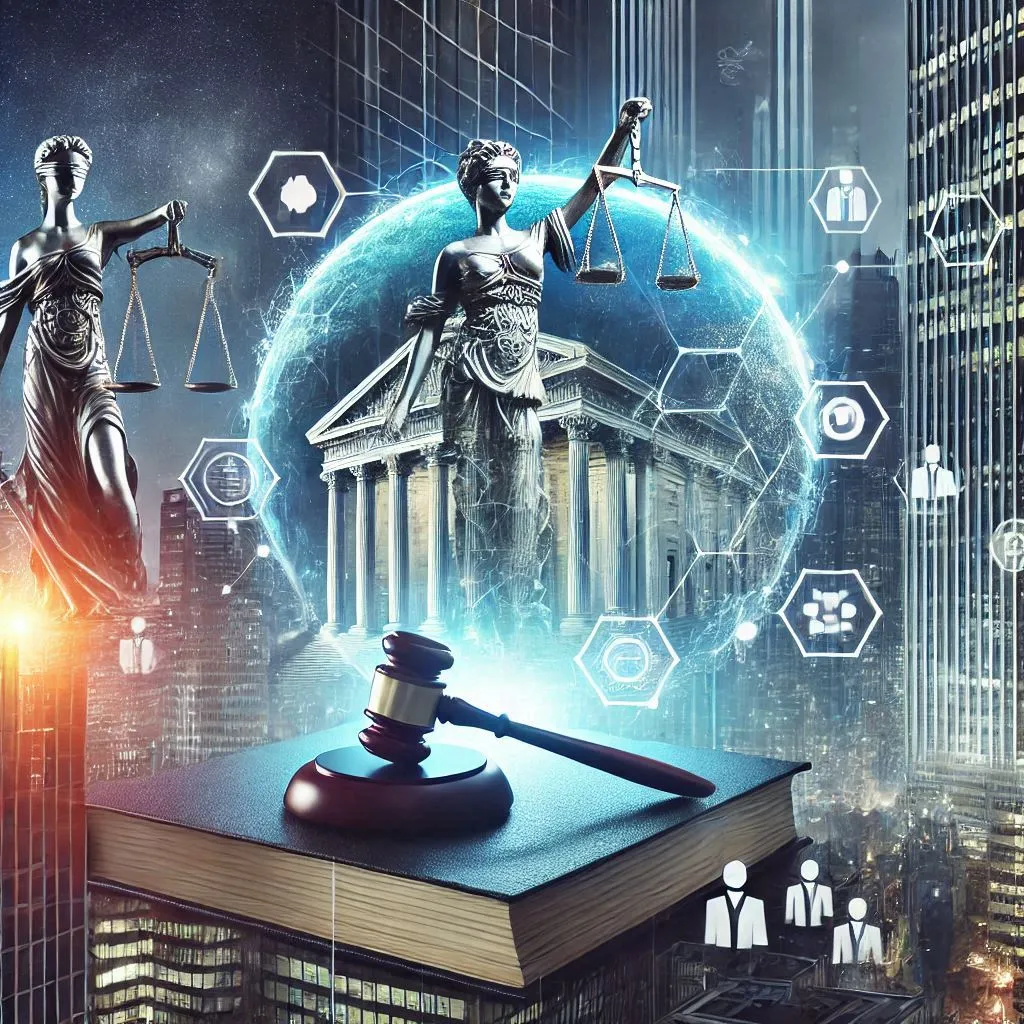Artificial intelligence (AI) is enhancing the legal sector by improving efficiency, reducing costs and automating repetitive tasks. AI powered tools help lawyers to analyze large amounts of legal data, predict case results and streamline the legal research. As AI technology continues to progress, the role of artificial intelligence in the legal sector will expand. This will offer advanced capabilities to legal professionals to work more efficiently and precisely, by using AI in law enforcement.
Effect of AI on Legal Sector
Artificial Intelligence is changing the legal field in multiple ways, like automating contract analysis or assisting in litigation. Below are main areas where AI is making a significant impact.
1. Legal Research and Document Analysis
Traditional legal research is time consuming and requires analyzing large volumes of legal texts. AI powered tools like LexisNexis, Westlaw and Casetext use machine learning to quickly find relevant cases, statutes and legal precedents.
Benefits:
- Speeds up research processes
- Improves accuracy in finding case laws
- Reduces manual workload for lawyers
A law firm uses AI based legal research tools to complete case analysis in hours instead of days, this gives lawyers more time for strategic planning and case preparation.
2. Contract Review and Management
AI helps to review contracts by identifying risks, missing clauses and inconsistencies. AI powered platforms like Kira Systems, LawGeex and Evisort analyze contracts in minutes, by highlighting key terms and suggesting necessary changes.
Benefits:
- Reduces contract review time
- Enhances accuracy in identifying legal risks
- Automates repetitive contract-related tasks
A corporate legal team uses AI to review thousands of vendor contracts, to ensure compliance with legal and business policies in a fraction of the time required by human reviewers.
3. Predictive Analytics in Litigation
AI can analyze past legal cases to predict the possible outcomes of a case. Machine learning algorithms examine patterns in judicial decisions, which helps lawyers to develop stronger case strategies.
Benefits:
- Provides data driven information for case strategy
- Helps clients understand the chances of winning a case
- Reduces uncertainty in legal decision-making
A lawyer preparing for a lawsuit uses AI based analytics to predict how a particular judge might rule based on past decisions, this allows him for more effective case strategy development.
4. AI Powered Legal Chatbots
Law firms and legal departments use AI chatbots to handle client inquiries, provide basic legal guidance and automate appointment scheduling. These chatbots offer quick responses and improve client experience.
Benefits:
- 24/7 client support
- Reduces workload for legal professionals
- Saves costs on administrative tasks
An AI chatbot on a law firm’s website answers common legal questions, which allows clients to get instant information without waiting for a lawyer’s response.
5. E-Discovery and Case Management
E-discovery means identifying, collecting and analyzing digital evidence for legal cases. AI tools help to scan large volumes of data, including emails and documents, to find relevant case evidence.
Benefits:
- Speeds up the discovery process
- Identifies relevant legal documents efficiently
- Reduces legal costs
AI software analyzes millions of corporate emails in a fraud investigation, to identify key evidence in hours rather than weeks.
6. AI in Compliance and Regulatory Analysis
AI helps businesses in staying compliant with laws and regulations by monitoring legal updates and identifying compliance risks. AI powered compliance tools help companies to adapt the changing regulations quickly.
Benefits:
- Reduces regulatory risks
- Automates compliance monitoring
- Helps businesses to avoid legal penalties
A financial institution uses AI to track regulatory changes and ensure compliance with anti money laundering laws, which minimizes the risk of costly violations.
7. AI Powered Contract Generation
AI can generate standard legal contracts by analyzing legal requirements and existing templates. AI based platforms create customized contracts, which reduces the need for manual drafting.
Benefits:
- Saves time in contract drafting
- Ensures accuracy in legal language
- Reduces dependency on human lawyers for routine contracts
A startup uses an AI powered contract generator to create employment agreements, which reduces legal costs and reduces hiring processes.

Challenges of AI in the Legal Sector
Although AI has brought many benefits, its adoption in the legal field comes with following challenges.
1. Data Privacy and Security Concerns
Legal data is highly confidential. AI systems must implement strict cybersecurity measures to protect client information from breaches and unauthorized access.
2. Ethical and Bias Issues
AI models learn from historical data, which may contain biases. To get unbiased and fair decision is very important.
3. Lack of Human Judgment
AI can analyze legal information but lacks human intuition and ethical reasoning. Complex legal cases still require human expertise and decision making.
4. High Implementation Costs
Adopting AI solutions requires significant investment in software, training and IT infrastructure. Small law firms may not afford AI powered tools.
5. Legal Liability and Accountability
If an AI powered tool provides incorrect legal advice or misinterprets case law, determining responsibility can be difficult. Regulations are still evolving in this area.

Future of AI in the Legal Profession
AI will continue to enhance the future of legal services. Following are the emerging trends to look for:
- AI powered legal assistants for more advanced case management and decision making
- Blockchain technology for secure contract execution and fraud prevention
- Improved natural language processing (NLP) for better legal text analysis and contract interpretation
- AI driven dispute resolution for faster settlements and arbitration
- AI in intellectual property law to help detect patent infringements and automate IP filings
Law firms that adopt AI will gain a competitive edge, which offers faster, more efficient and cost effective legal services.

Conclusion
Artificial Intelligence is transforming the legal industry by automating research, improving contract analysis, enhancing case predictions and optimizing compliance. AI driven legal solutions enhance efficiency, reduce costs and improve decision making. As AI continues to grow, legal professionals must adapt to new technologies to remain competitive.
Law firms, businesses and individuals should explore AI driven legal tools to streamline operations, enhance client services and stay ahead in the progressing legal sector.

